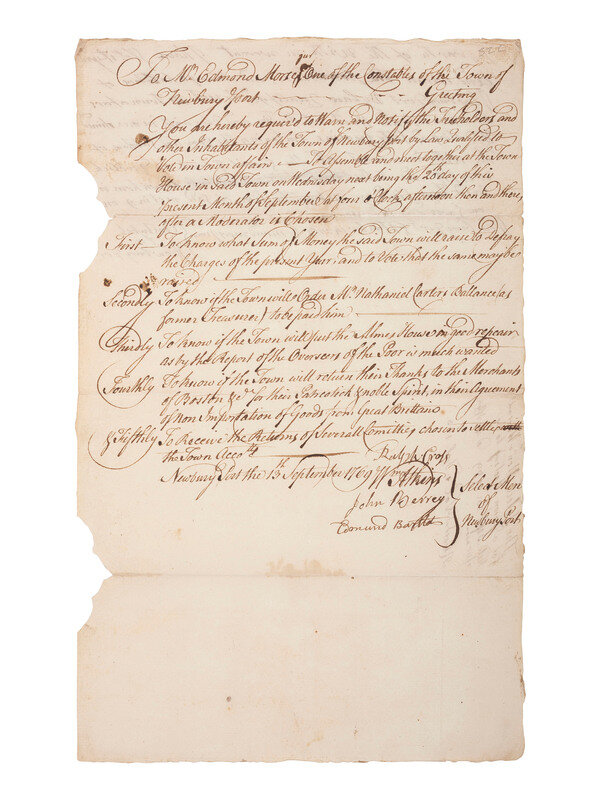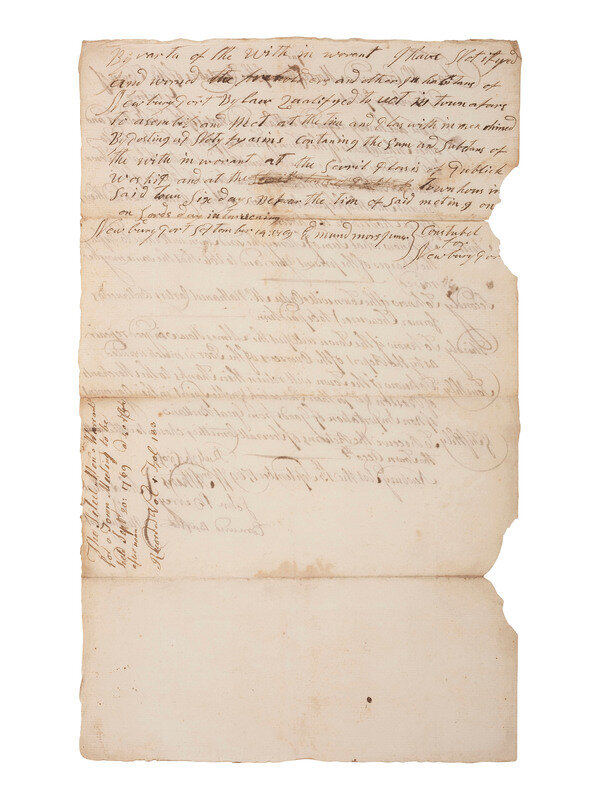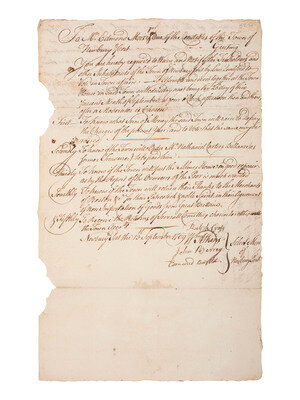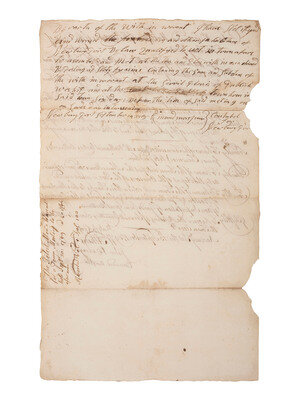Condition Report
Contact Information
Auction Specialist
Lot 307
[TOWNSHEND ACT] -- [REVOLUTIONARY WAR]. Manuscript warrant for Town Meeting which includes a resolution related to the Boston Non-Importation agreement. Newburyport, Massachusetts, 13 September 1769.
Sale 2057 - American Historical Ephemera and Photography
Oct 25, 2024
10:00AM ET
Live / Cincinnati
Own a similar item?
Estimate
$1,000 -
1,500
Price Realized
$953
Sold prices are inclusive of Buyer’s Premium
Lot Description
[TOWNSHEND ACT] -- [REVOLUTIONARY WAR]. Manuscript warrant for Town Meeting which includes a resolution related to the Boston Non-Importation agreement. Newburyport, Massachusetts, 13 September 1769.
"The Select Men's Warrant for a Town Meeting to be held Sept. 20: 1769 @ 4 o'clock [in the] afternoon." 2pp, approx. 7 1/2 x 12 in. Signed by the "Select Men of Newbury Port," Ralph Cross, William Atkins, John Berrey and Edmund Bartlett. Verso docketed and with signed statement of Edmund Morse Jr., "Constabel [sic] for Newbury Port," swearing that he posted the notice at several "plasis of publick worship and at the town hous in said town....".
Warrant lists five agenda items for discussion at the impending meeting, the fourth of which pertains to the Boston Non-Importation Agreement of 1768: "Fourthly To know if the Town will return their Thanks to the Merchants of Boston & c. for their Patriotick & noble Spirit, in their agreement of Non-Importation of Goods from Great Brittain."
Organized by the Sons of Liberty and Whig merchants, the Boston Non-Importation Agreement was signed on August 1, 1768, by more than 60 merchants and traders. It was a formal collective decision made by Boston based merchants and traders not to import or export items to Britain. The agreement, essentially a boycott, was a series of agreed upon commercial restrictions the colonists put in place with regard to trade with the mother country whereby they refused to buy "any tea, glass, paper, or other goods commonly imported from Great Britain." The decision for the agreement came about as a way to protest and combat the 1767 Townshend Revenue Act. The Boston Non-Importation Agreement was one of the most effective means of colonial resistance against British policy in the years before the American Revolution. Given the Select Men of Newbury Port's description of the Boston merchants as "Patriotick & noble," it seems clear they are indicating their support for the bold actions of the Bostonians.
A unique example of the patriotic fervor sweeping the colonies in the years prior to the American Revolution.



